
Histories that Make the India Story
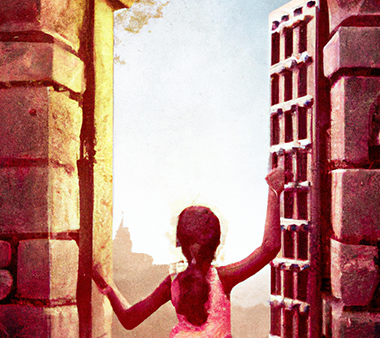
18 Mar | 09:30 AM – 10:00 AM
Inauguration
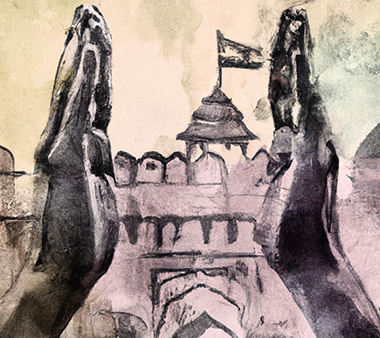
18 Mar | 10:00 AM – 11:30 AM
Tale of Two Empires: The Maratha and the British
Dr. Uday S Kulkarni and Prof. Amar Farooqui in conversation with Chinmay Tumbe
Between 1757 and 1818, two empires expanded their footprint across the Indian subcontinent: The Marathas and the British. What was the nature of these empires? How did they interact with other empires and with each other? How did people view these empires? And how do we know and understand their histories today? This panel unravels several layers of histories associated with the Maratha and British empires between the middle of the 18th century to the middle of the 19th century.
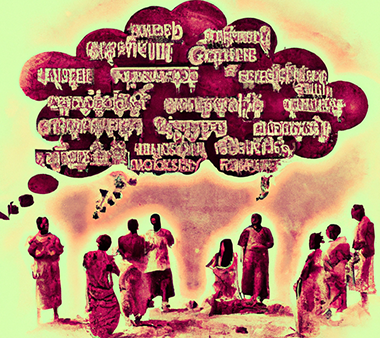
18 Mar | 11:30 AM – 01:00 PM
A People’s History of Language
Peggy Mohan and Prachi Deshpande in conversation with Rahul Sarwate
This panel explores how cultures and languages paved the way for community formations in the long processes of historical change in India. We see languages beyond their instrumental usage as tools of communication or as primordial sites of identity. Instead, we dwell upon the methodological insights derived from Linguistics, and Cultural History, to discuss issues like the multilingual character of communities in India, the relationship of Indian languages with English, the passionate and emotive nature of language worship in Indian contexts, and the interconnections between writing, script and language use with structures of power. The panel on People’s History of Language will seek to unpack the manifold histories of languages from below through stories, anecdotes and analysis.
18 Mar | 01:00 PM – 02:00 PM
Break
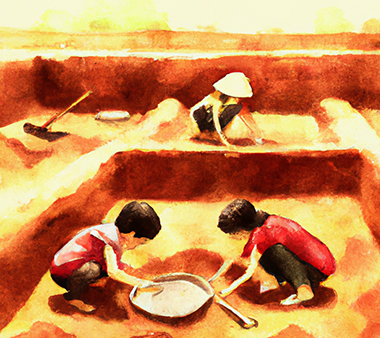
18 Mar | 02:00 PM – 03:30 PM
Tools of History: How Do We Know What We Know
Vasant Shinde, Disha Ahluwalia and Tana Trivedi in conversation with Amit Arora
Any discussion on history turns into a debate on narratives. While it may seem like a new phenomenon, it is actually as old as history itself. History also tells us that the only civilized way to engage in a debate is to look at facts, scientifically uncovered facts. This session will bring you face-to-face with the people who uncover these facts by removing dirt or dust. The panel features Prof Vasant Shinde who led the team that for the first time in India succeeded in extracting ancient DNA from a 7500 years old burial site in Rakhigarhi of Hisar. Disha Ahluwalia is an archaeologist working with ASI to further excavate Rakhigarh, an Indus-Saraswati civilization site, and pushing the origin dates of civilisation in the sub-continent further back. Our third expert – Dr Tana Trivedi – is the academic advisor for the Pattani Archives, a project that involves archiving and researching the life and times of the erstwhile diwan of Bhavnagar State, Sir Prabhashankar Pattani. The session will unravel insights, facts and stories from two most dependable tools of history – archaeology and archives.
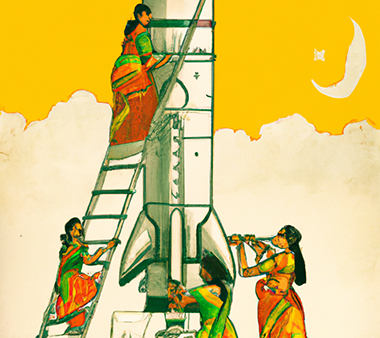
18 Mar | 03:30 PM – 05:00 PM
Science, Technology and the Making of Modern India
Jahnavi Phalkey, John Mathew and Dinesh C Sharma in conversation with Aparajith Ramnath
What can history tell us about science and technology? And, conversely, what role has science & tech played in shaping India’s modern history? The participants in this panel will explore these themes by delving briefly into the stories of nuclear physics, pandemics, natural history, the IT industry, the engineering profession, and other aspects of science & tech in colonial and post-colonial India. They will discuss how historical perspectives enable us to question simplistic and parochial narratives about the progress of science & tech and its relationship to society. The speakers will also reflect on the different media (academic publications, popular books, films, theatre, exhibitions) through which they have explored the history of science & tech.
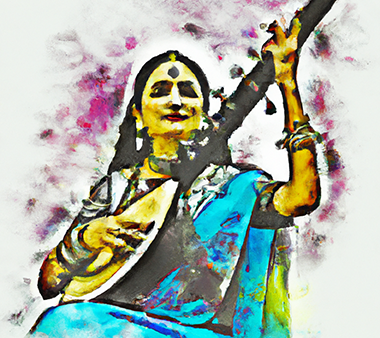
18 Mar | 05:00 PM – 06:30 PM
Musical Histories: Keeping Time, Keeping the Beat
Amarendra Dhaneshwar and Srijan Deshpande in conversation with Tejaswini Niranjana
This panel explores the history of Hindustani music from the late 19th century to the present. It does so through three axes: attempting to think critically about questions of tradition by looking at issues of orality and authenticity in Hindustani raga music (Srijan Deshpande); analysing the phenomenon of musicophilia in colonial and post-colonial times through the history of Bombay/Mumbai (Tejaswini Niranjana); and showing the deep connections between raga music and music composed for the cinema through tracing how the Hindi film song has evolved (Amarendra Dhaneshwar). The panelists will present their ideas with the help of stories, songs and documentary film footage.
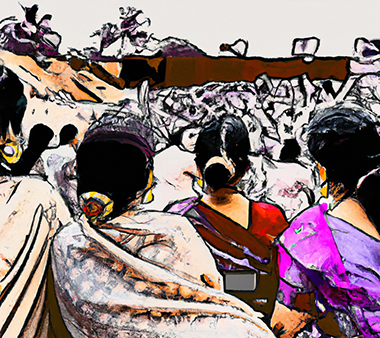
18 Mar | 06:30 PM – 07:30 PM
Kahaani: Folk Deities of India
This 45 minutes storytelling performance will include oral and local histories of the land through songs and lore. The performance will also include stories of a few Indian queens (ranis).

19 Mar | 10:00 AM – 11:30 AM
Ding, Ding, Click, Click: The Typewriter and Computer in Business History
Dayasindhu N and Vrunda Pathare in conversation with Chinmay Tumbe
This paragraph is being written on a computer but before the computer, there existed the ubiquitous typewriter. How did these two iconic objects capture the imagination of Indians in the 20th century? Dayasindhu, an expert on the history of the IT industry and Vrunda Pathare, an archivist at Godrej, which manufactured typewriters for a century, unravel the business history of these legendary everyday machines.
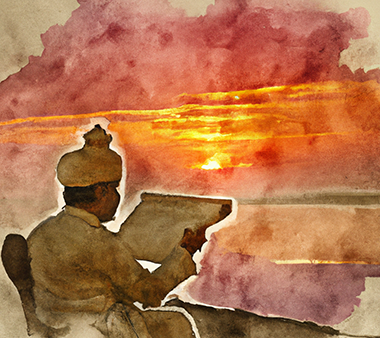
19 Mar | 11:30 AM – 01:00 PM
Rare Royal Tales: Unravelling histories of Gujarat
Yuvraj Somraj Singh Jhala and Yuvraj Shree Yograjsinhji of Mansa in conversation with Amit Arora
While books have been written on how Sardar Patel united India by bringing over 560 princely states into the new nation’s fold, very little is talked about the other side of the story — what was the transition like for the rulers of these princely states and their families? In popular media and some books too, they are usually depicted as cruel or ineffective or both. Facts like there were around 200 princely states in Saurashtra alone or that how several royal families provided unparallel support – like the Baroda royal family funded Dr BR Ambedkar’s education or the Bhavnagar royal family gave scholarships to students to go and study at MIT – are rarely found present in public discourse. What did these and other royal families go through in the wake of uncertainties of years before and immediately after India’s independence? Did they continue to have members of the public come to them with their problems and requests even after their rule was over and what did they do in such situations? The session ‘Gujarat History | A Rare Royal Tale’ will aim to unpack some of these lesser-known realities and stories of and from royal families.
19 Mar | 01:00 PM – 02:00 PM
Break
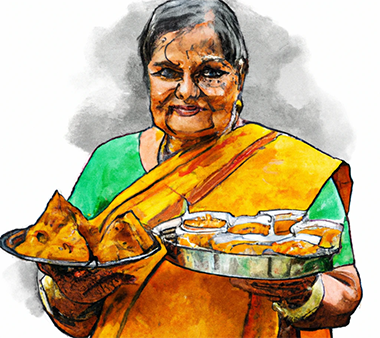
19 Mar | 02:00 PM – 03:30 PM
History of Indian cuisine, simplified
Sonal Ved in conversation with Nandita Agarwal
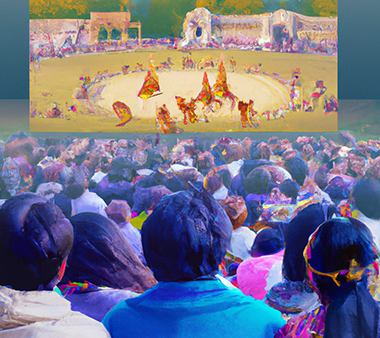
19 Mar | 03:30 PM – 05:00 PM
Pebbles in the silver stream: Significant moments in Hindi cinema
Kanchan Marathe, Prakash Magdum and Arunaraje Patil in conversation with Sathya Saran
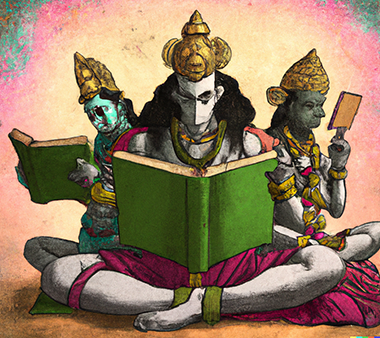
19 Mar | 05:00 PM – 06:30 PM
Ethics and Epics: History of Indian Philosophy
Mallika Sarabhai and Ami Ganatra in conversation with Shishir Saxena
How has the Indian mind thought – and continues to – about the myriad ethical and moral dilemmas that human life so abounds in? These complexities are confronted most resolutely within the Indian tradition in the bountiful stories of the two great epics, Rāmāyaṇa and Mahābhārata. These epics are for India not only unending and inexhaustible repositories of creative imagination, both poetic and philosophical, but also the sagacious fountainheads teaching exemplary conduct in all the mercurial splendour of human affairs, the ‘measuring rods’ – to borrow a metaphor from Kālidāsa – of morality. The panel on Ethics and Epics at the History Literature Festival seeks to celebrate the richness and continuing vitality of these over two-millennia old epics, and our three panelists – acclaimed dancer and public intellectual Mallika Sarabhai, renowned author Ami Ganatra and young academic Shishir Saxena – exemplify the varied approaches to the thoughtful study of these timeless works.
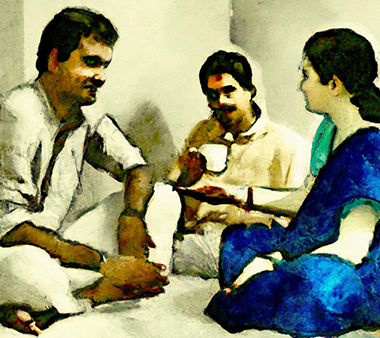
19 Mar | 06:30 PM – 07:30 PM
Baithak: Weaving the Threads of History
This session, characteristic to the History Literature Festival, will witness speakers and audience together reflecting upon the histories and stories unravelled over the Festival. The Baithak will not only aim to highlight new discoveries in facts and narratives of history but also highlight the new questions that may have emerged over the course of the Festival. Through all these discoveries, the Baithak will thread and draw connections across the 10 themes of this edition so as to develop a more complete view of history.
*Artwork created on Dall-E 2
